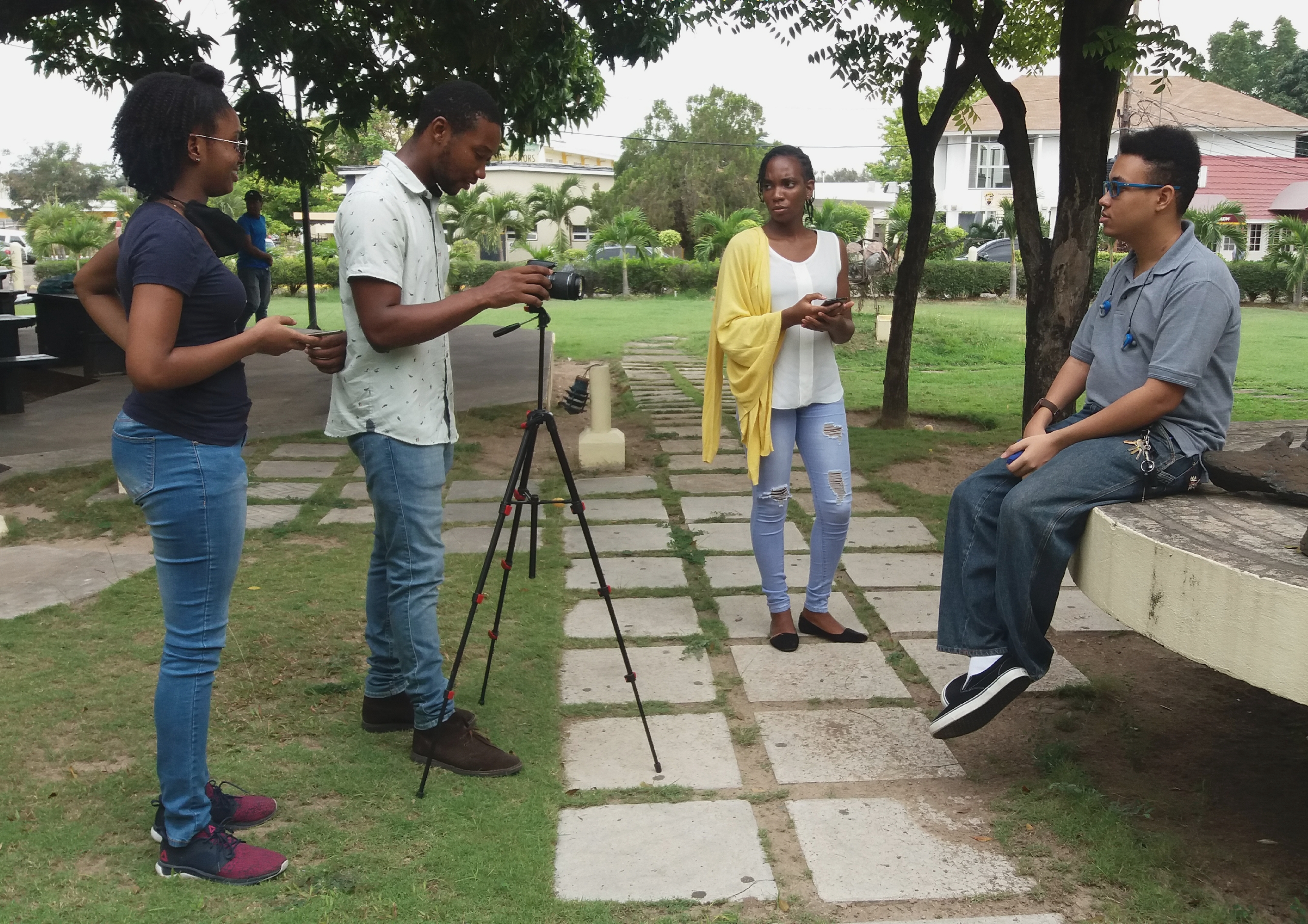The experience of creating content for a United Nations Development Programme (UNDP) webinar which focused on young people’s responses to the current COVID-19 outbreak resulted in the producers re-thinking their future as students. Roderick Boulin, a self-taught videographer says that the pandemic has helped him decide whether school is really important for his chosen field. He stated that “my degree was preparing me for an environment that no longer exists, it’s better for me to be in the field and use the knowledge that I already have to make a name for myself.”
The webinar that Boulin and other members of the UTech Journalism Society (UJS) created content for was the five day webinar series titled Ready Reset Recharge: Students re-imagining the future in the Covid era held in July. This webinar examined a special UNDP Human Development Report that looked at the emerging issues of the COVID-19 crisis and responses that countries and people should consider going forward. According to Gillian Scott, Communications Analyst of the UNDP in Jamaica, its aim was to “mobilize students to imagine their own responses, issues and concerns, and how they would mobilize a network and themselves to have an appropriate response to the COVID crisis.”

The main activity of the UJS team – which consisted of Dannielle Mullings, Brittany Jackson, Nakaylia Morant, Andrea John and Boulin – was the production of four vox-pops of Jamaican university students which drove each days’ discussions. The four questions were: “Are you job-ready for the post COVID world?”, “In your view, how will jobs change in the era of COVID 19? “What are you doing to reduce your risks in case we face a climate or pandemic emergency?” and “How can we bridge the digital divide and get more young people online for their lessons?”
The responses to these questions made the team members pause for thought. For Jackson – who considers herself an active person in the field of media – the pandemic has resulted in a number of uncertainties in her future which had demotivated her. However, after listening to the participants answers’ Jackson says “I began to think of ways that I could use my creativity and skills to get job-ready while adhering to the COVID-19 protocols.” John also found herself facing a level of uncertainty, as she wondered whether or not she would still be able to get a summer job or further her studies. The pandemic caused a rough transition from physical to online classes, resulting in adjustments to exams and projects to facilitate this new style of learning. Having been in a constant state of worry, John said following the stay at home orders and taking the necessary precautions helped calm her.
Beneficial Experience
UJS team members benefitted from the overall experience. Apart from re-evaluating the future of their education in the age of COVID-19, they were also able to learn skills on the job, and apply pre-existing skills for a client. For Morant, recording audio was new territory for her, but she picked up quite quickly with the help of Mullings. The videography skills used by Boulin, Mullings and John were learned by a combination of working in the field and doing their own research. Previous experiences also benefitted Jackson, who said that “while working in the field, professionals gave me tips on things I could do to improve on my delivery.”
Jackson and John both felt that it was a great opportunity for the Society to put the skills of its members on display. For Mullings, she learned valuable lessons about “how to navigate the professional world in terms of content, quality and agreements.” Very importantly, the work of the UJS resulted in a satisfied client. Commenting on the quality of the work produced for the webinar, Scott stated that “we were very pleased with the work of the team, and hope to continue partnering with UJS.” The experience resulted in the team being open to similar collaborations in order to showcase the work of its members and as a source of revenue.
Reported by Breanna Lewin
